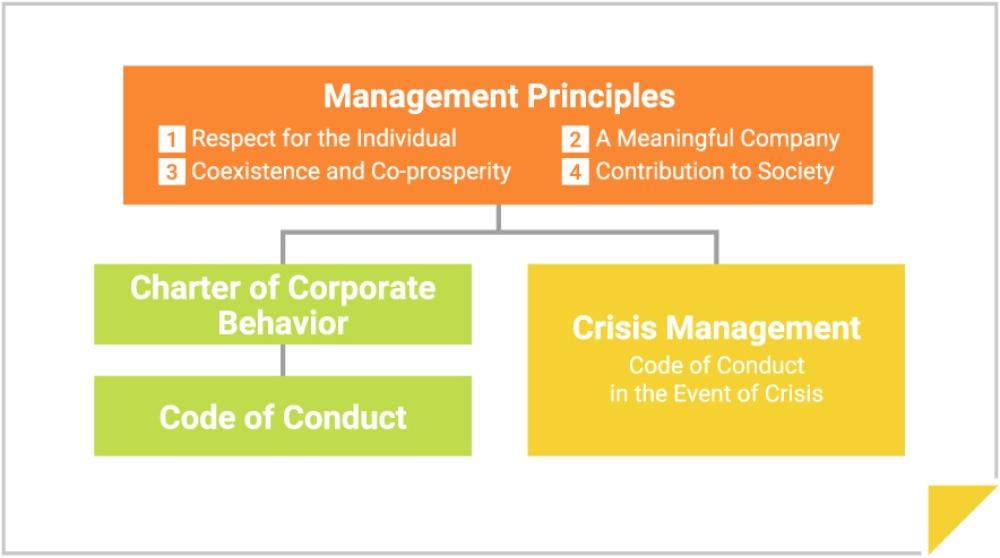Risk Management
Policies for Risk Management and Preparations for Crises

The Group defines "risks" as unfavorable events that may occur in the course of usual business activities and "crises" as events that may have a significant adverse impact on the Group's management and operations.
In executing business, we strive to implement risk management and crisis response in a safe and responsible manner. We continuously endeavor to minimize damage of risks or crises if they are to occur. If a risk or a crisis concerning the operations of the Group occurs, we appoint the highest priority to saving lives and preventing bodily injuries, and minimalizing adverse impact on the Group comes second.
The Charter of Corporate Behavior states the Group's policies on risk management and preparation for crises and the Code of Conduct specifies specific action guidelines.
It is stipulated that all actions by officers and employees of the Group shall be in accordance with Crisis Management—Code of Conduct in the Event of Crisis in the event of a crisis.
Information Security
In order to ensure compliance with laws, regulations, and other rules concerning information security, the Group provides such education designed to raise their awareness of the importance of information security to everyone working at the Group.
The Group checks the compliance status once a year mainly by using a questionnaire survey.
Business Continuity Plan (BCP)
In order to deal with any crisis in a secure and responsible manner in the event of an emergency, such as a large-scale disaster, the Group has systems in place in accordance with Crisis Management—Code of Conduct in the Event of Crisis.
In order to minimalize the impact on business and to fulfill our responsibility of supplying products and services to customers, our affiliates in the U.S.,Germany and Korea are also strengthening their production systems. The Group is deploying a tripolar production structure where operations in Japan,the U.S.,Germany,and Korea collaborate.

- *A business continuity plan (BCP) is a roadmap that a company follows in order to continue operations in an emergency, such as a large-scale natural disaster. A BCP specifies activities that should be implemented to ensure preparedness for an emergency and procedures for continuing operations in the event of an emergency, in order to minimize damage to business assets and enable the company to continue its key operations.